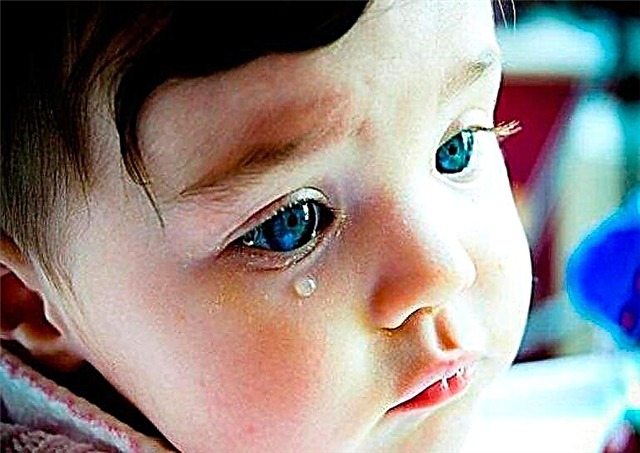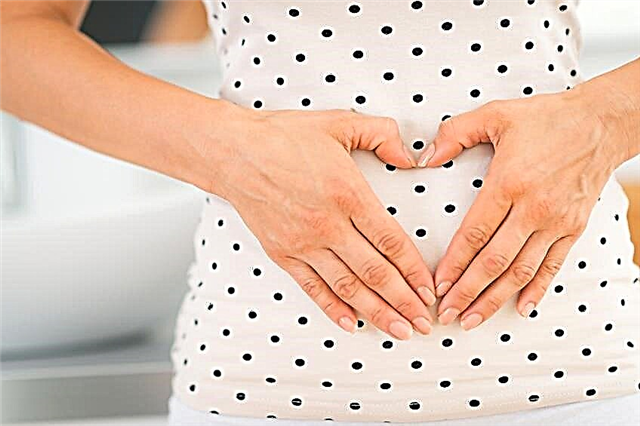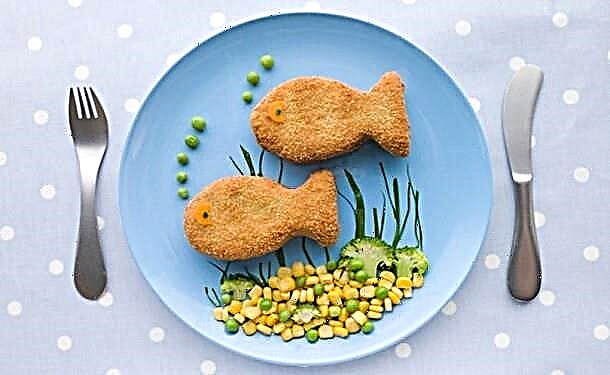
Respiratory system diseases are most common in childhood. All parents face them, so the choice of cough medicines is very relevant for every mother. If a sick child coughs, and sputum is difficult to remove, he is prescribed drugs with an expectorant effect.
These drugs help thin the mucus in the airways and stimulate the secretion of mucus, making the cough more productive.
Most often, these drugs are syrups. Some of them are made from plant components, others from synthetic compounds. And when choosing a syrup for a small child, for example 3 years old or 5 years old, most moms lean towards herbal remedies, one of which is licorice root syrup. In order for such a drug to help cope with a cough, you need to know how to use it for children and how much syrup to give a child, depending on his age.

Composition
100 grams of syrup contains 4 grams of its main active ingredient, represented by a thick extract of licorice roots. This plant, also called licorice or yellow root, has long been used in the treatment of coughs. It is found in the European part of the country, in Siberia, as well as in the Caucasus. An extract is obtained from the roots of licorice, and then various medicines are made.
It is important to note that every 100 ml of licorice root syrup includes 10 ml of ethanol 96%. This information should be considered when choosing a remedy for the treatment of cough in infants. The third component of the drug is sugar syrup, which contains 86 grams in a 100-gram bottle. This composition gives the syrup a brown color, a sweet taste and a peculiar smell.
So that the licorice extract does not lose its medicinal properties and is stored for a long time, it is produced in dark glass bottles. Some manufacturers add preservatives, water, purified glycerin, citric acid and other substances to the composition of the drug, but the most common drugs are those containing only licorice, sugar and alcohol.
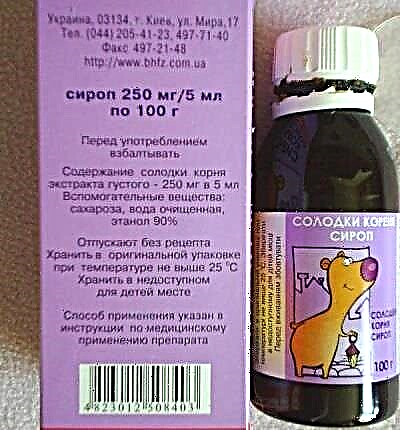
How does it affect the child's body?
The main action of the syrup, which contains licorice root, is to stimulate the motor and secretory functions of the respiratory system. The drug is prescribed for a wet cough, as an expectorant, if there is a viscous, thick and poorly separated secret in the child's bronchi.
The properties of the drug are due to the presence in licorice roots of such active substances as glycyrrhizic acid, essential oils, glycyrrhizin, polysaccharides and flavone glycosides. It is these compounds that activate the function of the epithelial cells of the respiratory tract and relieve the spasm of the smooth muscles of the bronchi, due to which the mucus liquefies, and its release during coughing is facilitated.

In addition to the expectorant effect of licorice syrup, other effects are noted:
- General strengthening of the child's body.
- Anti-inflammatory effect.
- Antimicrobial as well as antiviral action.
- Stimulation of the child's body defenses.
- Acceleration of healing of mucous membranes.
- Lowering blood cholesterol levels.
- Diuretic and laxative effect.
- Antineoplastic action.

Benefits
The frequent use of licorice syrup in the treatment of cough in children is due to a fairly large number of positive characteristics of such a medicine:
- Licorice root syrup is an affordable, inexpensive drug found in many pharmacies.
- The basis of the medicine is herbal raw materials (natural root extract), so it can be given in childhood.
- Because of the sweet taste, most sick children do not give up on this type of medicine.
- This syrup is a ready-made product that can be immediately given to a coughing child without the need to mix, boil or insist anything.
- The thick syrup quickly coats the mucous membrane and begins to act almost immediately after ingestion.
- Licorice syrup is quite convenient to dose. Many manufacturers include a measuring spoon or measuring cup in their packaging.

Indications
Given the expectorant effect, licorice root syrup is most commonly prescribed:
- With acute bronchitis.
- To relieve cough in acute laryngitis.
- With pneumonia.
- With tracheitis.
- With chronic bronchitis.
- With bronchiectasis.
Also, the drug can be prescribed during surgery on the respiratory tract, both before and after the intervention. It is also recommended for gastritis or peptic ulcer disease, but only during the period of recovery and remission.

Contraindications
Before you figure out how to give licorice syrup to children, you should also consider the presence of some contraindications to such a remedy.
This drug should not be given to children with:
- Hypersensitivity to any component of the drug.
- Gastritis in the acute stage.
- Bronchial asthma.
- Heart rhythm disorders.
- Peptic ulcer of the digestive system.
- Hypertension.
- Impaired kidney or liver function.
In diabetes mellitus, the medication must be prescribed very carefully, because it includes sugar.

For more information on the benefits of licorice root, see the program "Living Healthy".
From what age can it be used in children?
The syrup, which is made from the extract of licorice roots, is approved for use at any age, however, most pediatricians do not advise giving such a remedy to children in the first year of life due to the presence of ethyl alcohol in its composition. The use of licorice syrup is recommended for children who are already 1 year old.
In this case, the use of this medication in children 1-12 years old should be agreed with the attending physician, who will clarify the dosage and determine if there are any contraindications. The doctor will also take into account that this medicine has incompatibility with some other medicines. For these reasons, giving licorice syrup to children under 12 on their own is not recommended.
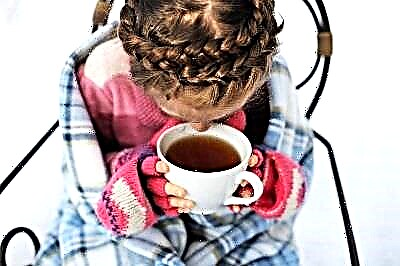
Application methods
The medicine is taken orally after meals, but before giving it to a child to drink, you should know how to dilute this drug. To dilute the syrup, children need to take boiled water at room temperature. In addition, the bottle should be shaken before measuring the required dose of syrup. If the drug is measured in drops, they are dripped into a spoonful of water.
- Children aged 1-2 years are given 1 or 2 drops of syrup at a time.
- For children who are 2 years old, the required amount of medicine is diluted in a tablespoon or in a quarter of a glass of water.
- At the age of 2 to 6 years, the dose of the drug can vary from 2 to 10 drops, for example, a child at 4 years old can be given 5 drops of syrup at a time.
- Children over 7 years of age to 12 years of age are recommended to dilute 50 drops of the medicine in half a glass of water.

Max. a single dosage of licorice syrup, depending on age, is as follows:
The frequency of application of the syrup is three times a day, and the duration of treatment is from 7 to 10 days. In order for the expectorant effect of such a medicine to be more pronounced, the child should be given a lot of warm drink, for example, weak tea or unsweetened compote.

Side effect
Some children who take licorice syrup have nausea and diarrhea. Also, the drug can cause an allergic reaction, which is manifested by itching, swelling and redness of the skin, a rash. If such signs of intolerance occur, the drug is canceled, replacing it with a drug with a similar effect.
Side effects can also appear if the recommended treatment time is violated (taken longer than 10 days). If you use licorice products for a long time, it can lead to an imbalance of fluid and electrolytes in the body, which will cause edema and increase blood pressure.
The same side effect is noted when the syrup of licorice root is combined with diuretics, cardiac glycosides, laxatives and some other groups of drugs. It is very dangerous to take this syrup together with antitussive drugs that can suppress the cough reflex.

Reviews and price
Before you take a syrup with licorice root extract, you should also read the reviews of parents who have already given this medicine to their coughing children. In most cases, licorice root syrup is responded positively, noting that such a remedy really effectively helps with coughing in children.
Among the advantages of the drug are its availability, pleasant sweet taste, natural composition. The disadvantages of licorice syrup, many mothers consider the presence of alcohol and sugar in the medicine, as well as the presence of contraindications.
As for the cost of licorice syrup, domestic preparations and syrups produced in neighboring countries are inexpensive. For the packaging of medicines from manufacturers such as Samaramedprom, Viola, Omsk Pharmaceutical Factory, Flora Kavkaza or Borshagovsky CP Plant, you will pay from 20 to 50 rubles.

Other licorice preparations
Licorice root syrup is not the only drug option that contains the herb extract. Licorice is available in pill form in pharmacies, and is also added to various herbal preparations and complex cough syrups.
You can also buy licorice candies, which, in addition to the plant extract, contain sugar, gelatin, molasses, starch, flavors and other substances. These sweets are popular with babies and can be used in the treatment of coughs in childhood.
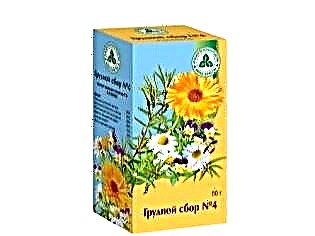

For more information on the treatment of cough in children, see the program of Dr. Komarovsky.

